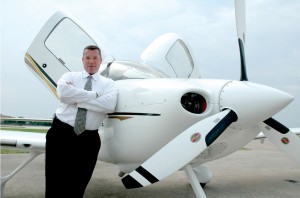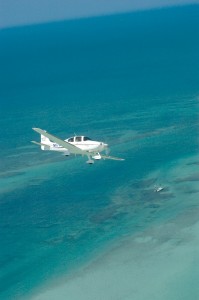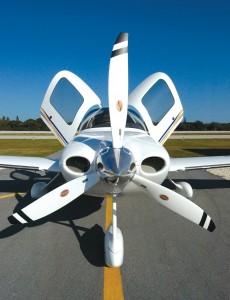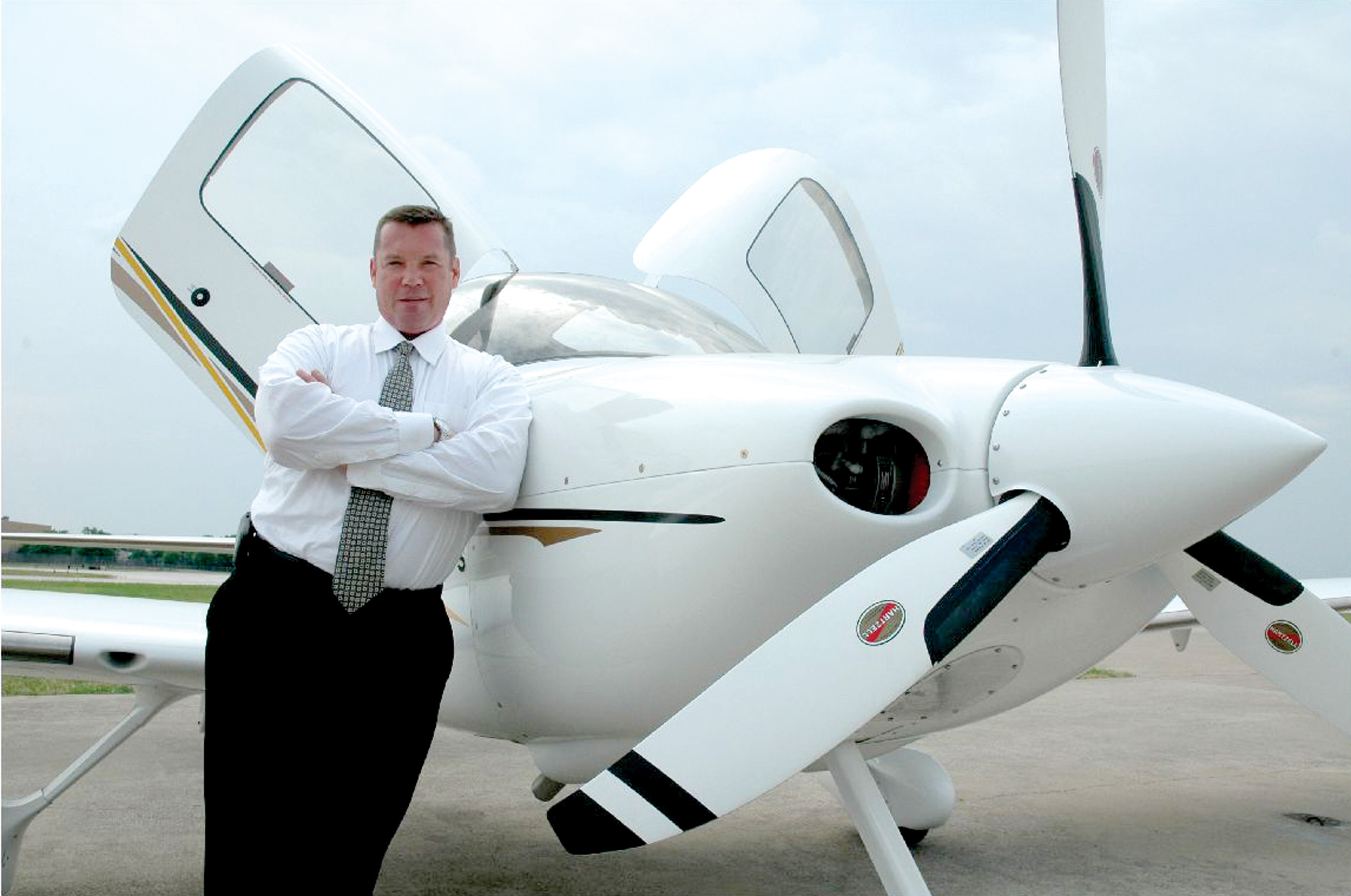By S. Clayton Moore

Jeff Cullen is planning to change the image of fractional ownership by putting customers into factory new Cirrus SR22-G2 aircraft.
A small startup in Austin, Texas is planning to change the image of fractional ownership by putting customers into cutting-edge aircraft. Instead of the typical aircraft found in similar programs, PlaneSmart is putting owners into factory new Cirrus SR22-G2 aircraft. The first-class operation provides instruction, insurance, storage, fuel and maintenance, in a professionally managed program, and with personal service.
Owner Jeff Cullen has 27 years of experience in the corporate and sales segment of the aviation industry, yet was always unsatisfied with the condition of the weathered renter airplanes he occasionally flew. Several years ago, he looked into starting up a BizJet fractional program but the opportunity fell through when venture capital money dried up after 9-11. However, his research led him to a different concept.
“We used the information that we gained in our BizJet research and started to apply it to these new technically advanced aircraft coming out, such as the Cirrus, Eclipse and Adam Aircraft,” Cullen explained. “I asked myself why not bring these late-model, high-performance airplanes to the market fractionally so that guys like you and me can enjoy the benefit of exclusive red-carpet use of the aircraft without paying some huge amount.”
Cullen and his team talked to Cessna, Raytheon and other companies before finally being convinced by the SR22-G2, one of the bestselling single-engine aircraft in the world. With a top speed of 185 knots, the futuristic aircraft features a glass cockpit, a maximum range of over 1,000 nautical miles, a climb rate of 1,400 feet per minute and a useful load of over 1,100 pounds. Its Continental IO-550-N engine is Cirrus’ best performing engine, generating 310 hp.
“The closer you look at the SR22-G2, the better it gets,” Cullen said. “On its own, both technically and performance-wise, it’s a great all-around aircraft. Our pilots spend most of their time educating customers on the Cirrus and many of them are converts. Our customers have read about it in the magazines and they really want to get into the airplane. It’s low-wing. It has an automobile-style interior. It climbs fast. It just has a ton of competitive advantages.”
Although PlaneSmart has started with just two aircraft—one in Austin and another in Addison, Texas—the company has invested a lot of money in getting started on the right foot.
“In the fractional segment of the industry, this is a relatively new concept,” Cullen said. “We’re not a spin-off from a flight school or a flight department. We set ourselves up in business specifically to expand and grow the fractional segment of the industry.”

The SR22-G2 chosen by PlaneSmart is one of the most popular and safest single-engine aircraft available today.
That means that PlaneSmart isn’t waiting around to collect customers to buy airplanes. They’re using their burgeoning relationship with Cirrus to purchase fully-loaded SR22-G2s and investing in upgraded amenities like air conditioning. For each aircraft, Cullen and his team also have to arrange for insurance, FBO services and maintenance, as well as instructor services. They even give each customer a fuel card so there’s no digging for credit cards at the gas pump.
It’s those kinds of details that Cullen says makes the difference in the PlaneSmart operation.
“We have designed our program as literally a buy-today, fly-tomorrow, first-class, turnkey bundled service,” Cullen affirmed. “Our customers don’t have to worry about hangars, insurance, fuel and oil, debugging the aircraft or even washing it. We’re an aircraft sales and management company and our emphasis is on the management side.”
Cullen has tried to make the pricing structure as simple as possible. A one-eighth share in an aircraft, guaranteeing 75 hours per year for four years, costs $69,900. Among other services, the monthly management fee of $735 pays for the bundled services including program creation, management, registration and upgrades. Finally, there’s an hourly fee of $75 per hour to cover the fuel and oil burn in the SR22-G2.
“Once these costs have been captured to include maintenance, that’s it,” Cullen said. “These are predictable costs. You don’t get to the end of the year and suddenly there is a $5,000 bill waiting for you.”
The aircraft are immaculately maintained as well. They go through an engine oil analysis every 50 hours, an engine data analysis every 30 hours and a 100-hour annual inspection. PlaneSmart is not shorting their customers on amenities, either. They invest in technical upgrades as well as creature comforts like air conditioning and Bose noise-canceling headsets.
“We’re a little pricier than the other guys because we have baked in future services today,” Cullen explained. “Services don’t get shortsighted a year or two years or four years from now. We throw a lot of money at these aircraft because we’re a first-class operation; that’s what we’re chartered to be.”
In addition, PlaneSmart offers 24-hour telephone and online aircraft scheduling and has only had two easily resolved scheduling conflicts in their first year of operation.

The advance aerodynamics of the composite airframe combined with a 310-hp, high-performance engine makes the SR22-G2 the fastest airplane in its class.
At the end of the four-year term, the aircraft is refurbished as necessary, including prop, engine, paint and interior, and put on the market. Based on the fair market value of the aircraft, owners then receive back their portion of the sale.
PlaneSmart has also brought on highly-trained instructor pilots including Chief Pilot Rick Kahler, a 30-year veteran of the U.S. Air Force and a Cirrus standardized instructor program pilot. In fact, PlaneSmart’s training course for new owners is identical to the transition course that Cirrus offers all owners of brand-new Cirrus aircraft.
“When you come into our program, not only are you buying a brand-new airplane in the Cirrus, but also the high-time instructor pilots are on staff and available to start transitioning you into the aircraft,” Cullen said.
Owners are required to have 350 hours and an instrument rating, or 250 hours and be pursuing an instrument rating. The company puts a lot of emphasis on training and safety and is extremely generous with its training hours, which are built into the program.
PlaneSmart allows owners to exceed their allotted hours per year in order to maintain any flight review, licensing or experience requirements. They also don’t count hours spent in transition training towards the annual flight hours guaranteed in the purchase.
Although Cullen and his team have their hands full managing their present program and investigating new aircraft to see if they’re a good fit for PlaneSmart, the company’s biggest challenge today is educating customers about fractional ownership.
“It has some unique characteristics,” he admitted. “We knew the market was out there and it was being validated; there’s a lot of maturity in what we’ve accomplished in the last 30 months. We have to spend a lot of time in the marketplace educating customers about fractional ownership.”
To that end, PlaneSmart is holding open houses at airports around Texas each weekend to share their passion for flying and find the right customers for their unique program.
“For busy individuals or those who like to fly a couple of times a month, this is a great program,” Cullen said. “If a guy flies less than 50 hours a year, he’s typically a renter. If he flies more than 300 hours, he’s a whole airplane guy. We’re finding just the right fit to fill the need between those ranges.”
For more information, call 866-264-2569 or visit [http://www.planesmart.com].











